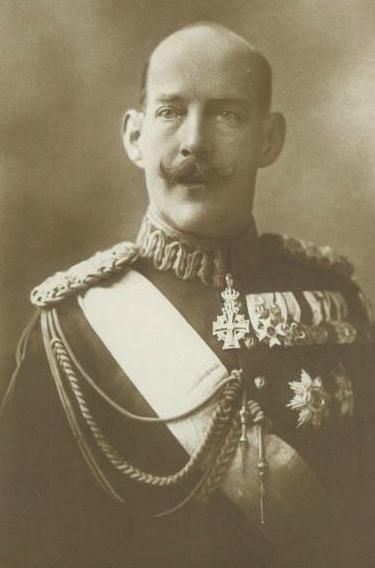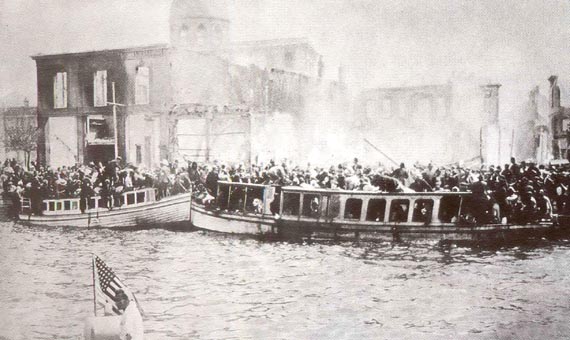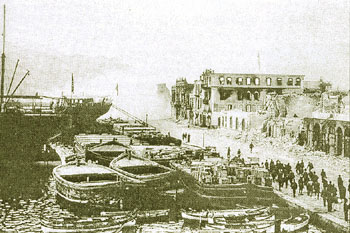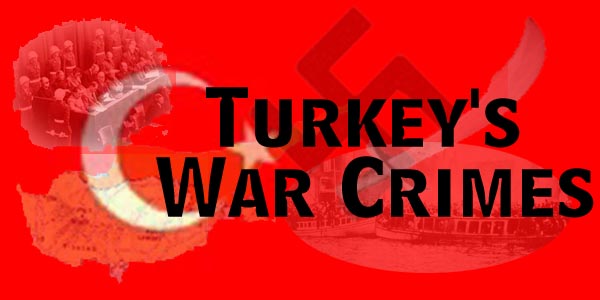 |
|
|
|
|
| Betrayal and Barbarity Imagine a life where it’s a crime to celebrate or reveal your ethnic heritage, where the law requires you to abandon your ways and culture and meld invisibly into one indistinguishable mass with the majority, or suffer the consequences. And woe to anyone caught reading, speaking, dressing as, or playing music of another culture. Welcome to Asia Minor during the early part of the twentieth century. It was during this grim period when over 1.5 million Armenians were systematically exterminated. Whether you were an Armenian man, woman or infant, you were fair game to be cut down on sight, per order of the state. Unarmed and powerless, Greeks witnessed this horror, terrorized with the fear that they were next. Xenophobic Turkish zealots viewed any culture or language other than their own, a possible threat to national security. The objective was to forcibly ‘Turkify’ everyone and to subjugate them. It must be emphasized that Hellenic civilization and culture was not some foreign way of life. On the contrary, Hellenism had been the dominant culture of Asia Minor for two millennia before any Turkic people ever came on the scene! Add to this the fact that the census figures of 1912 showed over 2 million multigenerational Greeks living throughout Anatolia and Constantinople, and you get the image of a long oppressed people enduring their captivity. When World War I came along in 1914, Turkey sided with Germany against the Allies. Four years later, a defeated Turkey was supposedly to have been broken up as an economic prize amongst the victorious Allies. Although Constantinople was the capital and a larger city, Smyrna was the country’s economic hub of activity, with its easy access to Europe. Smyrna was both the country’s export center of agricultural products and a popular resort destination for many Europeans, with its hotels, theatres, restaurants, a country club and golf course. So, all of the Allies were eyeing Smyrna. A cosmopolitan city; it represented a mosaic of varied ethnic groups. Each one had its own distinctive neighborhood ?or quarter, consisting of Greek, Turkish, Armenian, Jewish and European residents. |
|
|
|
It should be noted that long before the war, France and Britain were well invested in Smyrna, owning railways, trams and even the electric utility. American interests were in oil and tobacco. With the war over, they now sought to regain their control. France was also concerned about collecting on several pre-war loans made to Turkey. |
| Included in the list of Allied Powers with Britain and France were Italy, the United States, Japan, and Greece. A long drawn out discourse followed, however, over how these victors spoils should in fact be distributed. A major problem facing some of them was how or why a particular asset should now be shared with Allied partners when at one time it was 100% their own? In the meantime remnants of the Turkish military, led by Kemal Ataturk, were reorganizing and making noise in the interior region, bent on derailing the planned partitioning of the country and not about to give up. World War I had ended in 1918 and by 1919 the Allies were still unsure as to how to proceed. They had little to no military presence in Asia Minor, but felt that the rebels had to be contained. On the other hand, they positively wanted no part of having to recall their troops back into action, especially after just dispatching them home. Politically, it was out of the question; and besides, wasn’t World War I supposed to have been “the war to end all wars”? Britain proposed that perhaps the Greek army should be deployed into Smyrna to secure the area and deal with any rebel outbreaks during the interim. The Allies of course would have to fund this operation and supply the necessary munitions, as Greece was neither financially nor logistically capable of mounting such a campaign on its own. This idea provided a good solution for the Allies’ current dilemma. |
|
 Smyrna harbor, early 1900's |
So, on the sunny morning of May 15, 1919, Greek troop ships escorted by the British navy made their way into Smyrna harbor amid jubilant crowds of Greek well-wishers. They were greeted at the quay with blue and white Greek flags aflutter, and a blessing from Smyrna’s Metropolitan Chrysostomos. Many other parts of the country similarly welcomed this news with great joy and the prospects of better days ahead. However, this move also served to rouse the rebels to an escalated pitch. |
|
The Athens political scene saw Eleftherios Venizelos at its helm as prime minister and the King ousted. (Germany’s emperor, Kaiser Wilhelm, the World War’s archenemy, was King Constantine’s wife’s brother!) Meanwhile, the Greek army was doing surprisingly well, winning just about every skirmish with the rebels, and increasing their territorial domain in the process with each passing month. Over time, this caused much consternation amongst the Allies, especially France and Italy, who had no intention of ever seeing Asia Minor become Greek controlled. Their vision of dominating Asia Minor to cash in on its commercial and economic resources was fading with each passing year. So, they reversed their stance and now sought a way to withdraw their support of the Greeks, (without looking too duplicitous, of course), figuring they could always strike some deals later with Turks. In the meantime, back in Greece, the populace was growing weary of the seemingly unending state of war, ongoing since the 1912 Balkan Wars. A plebiscite was called concerning the unrest. Venizelos’ headway in Asia Minor was going extremely well and he believed this would carry him towards a vote of confidence. However, in November of 1920 the catastrophic results of that vote saw the removal of Venizelos and the return of the King back to the throne. Now, the Allies saw a perfect out: After all, how could they continue to support this Greek army now that it had blood ties with the former enemy? So, on August 21, 1921 the major Allies decided to cut off further supplies and funding. The Greek army was officially adrift on its own, abandoned by its ‘friends in arms’. From that moment on the Allies pronounced themselves ‘neutral observers’ and viewed the struggle in Asia Minor as an unfortunate Greek-Turkish war. The Greek soldiers were soon thereafter to find spent shell casings on the battlefield, coming from Turkish positions, bearing French markings! Later, it would come to light that Italy and France had been in fact been double-dealing with Kemal for some time, secretly supplying the Turks behind the backs of their fellow Allies. |
|
|
A further blow to the Greek soldier’s morale came when King Constantine replaced Venizelos’ battle-proven officers with his own inexperienced cadre of commanders. In the face of such setbacks, the Greeks nonetheless managed to hold off the rebels for another year, without the benefit of Allied supplies and provisions. So, as the Greeks weakened, Kemal’s forces were being fortified and gaining strength. With the interior region now under rebel control, Kemal’s stated objective ‘to push all of the Christians into the sea’ was at hand. The Greek front eventually collapsed on August 26, 1922 and the Turkish irregulars, called the chettes, invaded the city of Smyrna on September 9th, in a frenzy of rape, murder, mutilation and holocaust, setting the city ablaze as they went (except for the Turkish quarter, that is). The onslaught went on for days. Delirious parents hurriedly disguised their daughters as males, praying they would escape the glance and unspeakable acts of roving hordes. |
 Constantine I, King of Greece |
The city aflame forced the population down towards the quay at the water’s edge, huddled together in a mass of humanity two miles long. Pregnant women gave birth prematurely and horrendous acts were committed on those who happened to be in the chettes’ path. Many never made it to the quay, falling victim instead to flailing scimitars and flames. Horses crazed by the heat, trampled people, pushing them into the sea. Those who tried to escape in small watercraft were hosed down as they tried to get away. The hose sprayed kerosene, not water, and they too were set ablaze. Others gave up hope after swimming out to one of the ships, only to be turned away or met with a pot full of scalding water. (The sailors had orders not to interfere with this ‘internal Turkish problem’, as it was purportedly a matter concerning ‘Turks and their minorities’. Assisting one of these poor wretches would be viewed as an ‘affront’ to the Turks and thus imperil future business negotiations.) In the interior region, countless others perished in the columns of death marches. Kemal discovered that he could not only snatch victory away from the victors, but rid Turkey of the Christian population at the same time, without any outside interference! |
|
 Smyrna 1922, evacuation of refugees |
 Smyrna 1922, post Catastrophe |
Metropolitan Chysostomos declined several offers to escape the carnage on one of the last ships departing Smyrna harbor, citing his solemn duty as a priest: ‘to remain with his flock in times of tribulation’. He would suffer a particularly gruesome death at the hands of a crazed mob and died an exemplary Christian martyr. Only God knows how many actually perished throughout the entire country. The death toll in Smyrna itself was estimated to have been approximately 200,000. This once pleasant sunny locale for vacationers, honeymooners and holiday fun-seekers, turned into a surreal macabre scene of frenzied horror, mutilation and fright-maddened people. For days on end, roving Turk gangs did whatever they pleased in full view of foreign vessels anchored only yards away. Not he least of these, was to douse defenseless cowering victims, begging for mercy, with fuel and watch them die after incinerating them. The harbor was filled with so many corpses that the ships could no longer navigate the waterways without entangling bodies in their propellers. The more than three dozen Allied ships witnessing this holocaust also wound up serving as a cruel prop. People, desperate for relief, looked to the vast multi-national armada, as a source of protection, and initially reasoned that surely, no harm would come to them before the eyes of such a worldwide audience. Alas, to the discredit of our alleged civilized society, the primary issue here was money, not mercy; and those who had hoped rescue was imminent were sorrowfully mistaken. |
|
|
(Posting date 18 September 2006; images added by HCS 23 September 2006) HCS encourages readers to view other related articles and releases in our section on Smyrna and Asia Minor and in our permanent, extensive archives at the URL http://www.helleniccomserve.com/contents.html. |
|
|
|
|
2000 © Hellenic Communication Service, L.L.C. All Rights Reserved.
http://www.HellenicComServe.com |
|

